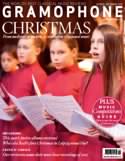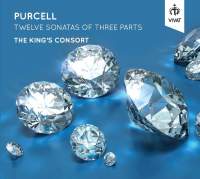Texte paru dans: / Appeared in: |
|
|
Outil de traduction (Très approximatif) |
|
|
Reviewer: Lindsay Kemp
There is no particular stylistic distinction between Purcell’s two sets of trio sonatas, despite the fact that one (published in 1683) bore the title Sonatas of Three Parts and the other (published posthumously by his widow in 1697) Sonatas in Four Parts. Both, in fact, feature four partbooks, respectively for two violins, bass viol and basso continuo, and it seems likely that all the works in them were written around the same time, in the early 1680s. If so, we can assume that the twelve 1683 sonatas, arranged in careful key sequence, were Purcell’s first-choice items, and certainly his famous comment – that they were a ‘just imitation of the most fam’d Italian masters’ – suggests an element of quiet pride. Those Italian masters would have included the likes of Colista, Cazzati, Vitali and (new on the scene) Corelli, and Purcell’s reflections of them, with their Italian-language performance instructions, must indeed have seemed quite exotic. Yet the English master’s own creative personality, his ravishing melodic gift and restless harmonic fortification are all over them.
The King’s Consort have already
recorded the 1697 sonatas (8/14), and bring the same musical qualities to bear
here. The violinists Cecilia Bernardini and Huw Daniel are first-rate, ideally
matched in a transparent but easily sustained and beautiful sound, and the
continuo contributions from Reiko Ichise’s gamba, Lynda Sayce’s theorbo and
Robert King’s organ and harpsichord are delicately supportive. Some listeners
may wish for a little more continuity and force, for instance in those places
where a movement seems to want to spill into the next and in those gut-wrenching
Purcellian plunges into chromatic disintegration. Yet although the excellent
Purcell Quartet describe a more involving flow of events, London Baroque create
a richer and weightier eloquence and the Retrospect Trio a firmer and more
rhythmic definition, there is nevertheless a sweet grace and clarity to these
new performances that makes for pleasant listening indeed. |
|
|
|
|
|
Cliquez l'un ou l'autre
bouton pour découvrir bien d'autres critiques de CD |
|




